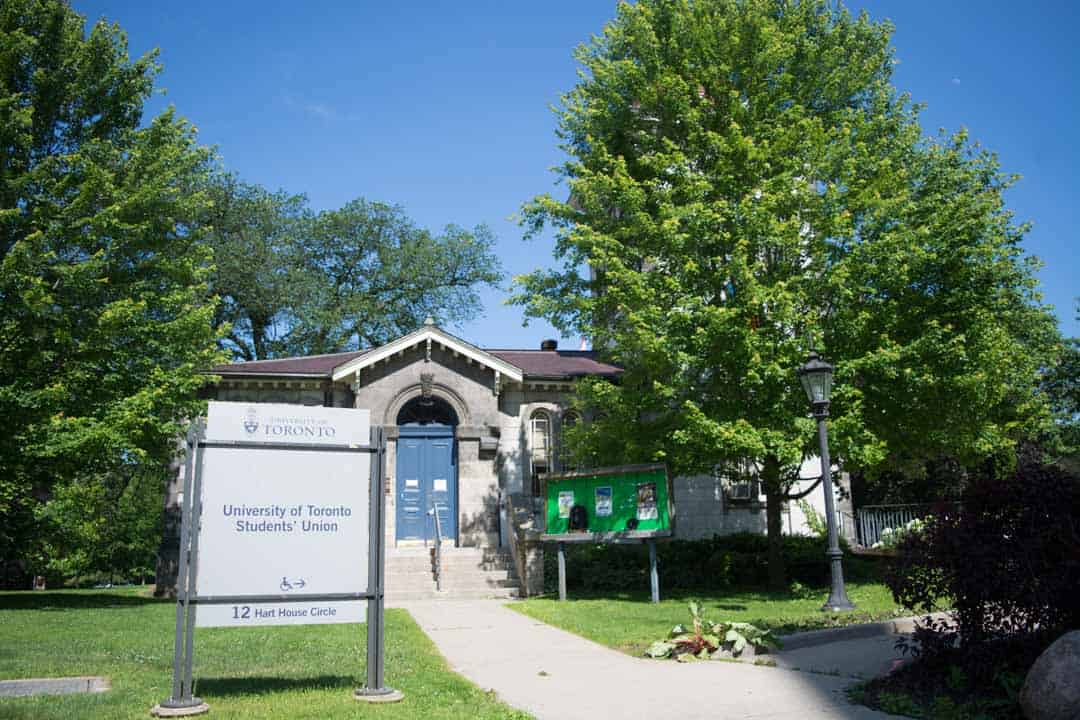On October 6, a petition that seeks to eliminate the student levy for the Ontario Public Interest Research Group (OPIRG) was submitted to the UTSU. The petition has received the necessary 250 signatures to begin the formal process to hold a referendum to defund the group. OPIRG is a province-wide network of campus groups that, according to the OPIRG-Toronto’s website, share a mandate “for action, education, and research on environmental and social justice issues.” There are currently 10 other university campuses in Ontario that have an OPIRG chapter.
In compliance with the Charter for Referenda, under Schedule B, any referenda that concerns a recognized campus group is put to a vote concurrently with the Fall and Spring elections. However, due to an administrative error on the part of the UTSU, the vote will occur from November 20–22 under the terms of Schedule A of the charter.
Mathias Memmel, President of the UTSU, wrote that “while Schedule A referenda are technically initiated by the Executive Committee, the UTSU won’t be taking a position in the case.”
Moreover, since the changes to the Charter for Referenda in the Spring, petitions regarding student groups need only 250 signatures, as opposed to 5,000.
Students currently at UTSG pay a 50-cent levy per session to OPIRG-Toronto as part of their tuition. Students are able to opt out of this fee before October 2 through an online form on the UTSU website or by visiting OPIRG’s office.
Rumours had been circulating since frosh week about a group of students who were looking for signatures to defund OPIRG. The rumours, however, could not be confirmed as none of the lead petitioners publicly stepped forward. Even now, their identities are not public.
Souzan Mirza, a board member of OPIRG-Toronto, expressed her disapproval with the petition.
“OPIRG’s programming is widely enjoyed by students across campus, and the 50-cent levy we receive from UTSU members is optional. So we were surprised to hear that a small group of students wants to organize a referendum outside of an election period, rather than simply opting out of the levy or raising concerns with us.”
Mirza also conveyed her concern regarding the change to the Charter for Referenda. The reduction in the number of signatures needed means that referendum questions can be posed to the entire UTSU membership with support from less than two per cent of members.
“Since OPIRG began in 1981, we have enjoyed broad support from students, organizations, and staff across campus,” Mirza wrote, “because OPIRG provides essential programming and support for student research, education, and social justice organizing.”
In regards to the UTSU’s error, Mirza wrote that OPIRG was concerned with the union’s failure to follow their own bylaws. “They were planning on holding a referendum on the petition during the October elections without giving 14 days notice to their membership, a fact we had to make them aware of,” she said.
Mirza also explained that OPIRG has yet to have come in contact with the main actors of the petitions, and that the group’s knowledge of the petitions has only come from their correspondence with UTSU President Memmel, Vice-President Internal Daman Singh, and the Chief Returning Officer.
According to Mirza, the impact of defunding OPIRG “will impact the countless students who enjoy our programming, volunteer opportunities, and rely on our services throughout the year. OPIRG supports equity and anti-oppression initiatives on campus, and defunding [OPIRG] will impact already-marginalized students and organizations on campus.”
In 2012, the Graduate Students’ Union voted unsuccessfully on whether or not to remove OPIRG’s levy from graduate students. However, this is the first time that the UTSU has had to call a vote to decide the removal of the levy from undergraduate students. Calls to defund OPIRG are not new on Ontario campuses; the group has faced criticism for ‘radical left-wing views’ in the past, and for supporting the Communist Student Research Group and Students Against Israeli Apartheid.
The Varsity is unable to identify the members leading the movement to defund OPIRG.


